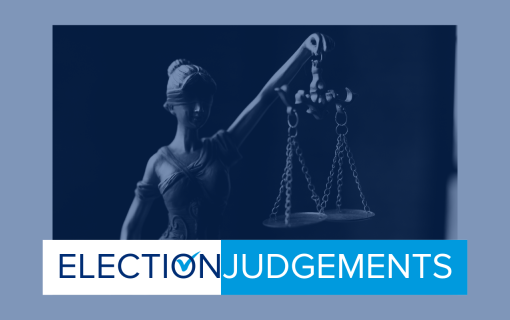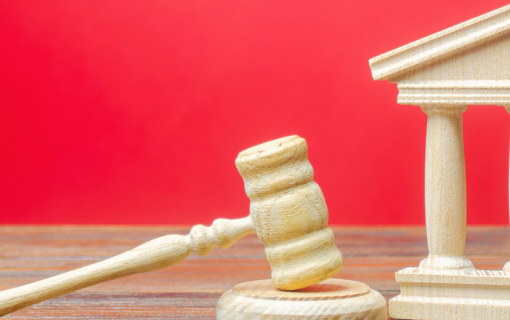IFES Q&A with the Director of the Organization of American States’ Department of Electoral Cooperation and Observation, Gerardo de Icaza Hernández
In December 2013, Gerardo de Icaza Hernández was appointed Director of the Department for Electoral Cooperation and Observation (DECO) for the Organization of American States (OAS). He is also a founding partner and Director of International Affairs for Democracy Building International (DBI). Hernández previously worked for Mexico’s Federal Electoral Institute (IFE) and has advised federal and state institutions on electoral issues and democracy. He has also given many lectures and conferences in Mexico and abroad, and published dozens of articles on electoral matters. Hernández has a degree in law and a master’s in international relations and communication.
Thinking back prior to your current role, how did you get into election management?
In 2005, legislators in Mexico had just passed a bill allowing out-of-country voting and the IFE, now known as the National Electoral Institute, was looking for a bilingual lawyer with international experience. I interviewed for the job and have been working in elections ever since. After working a couple of years at IFE, I started working at the Federal Electoral Court of Mexico, first as a law clerk for one of the magistrates and then as Chief of International Affairs. In total, I was there for five years before setting up my consulting firm Democracy Building International (DBI). On December 31, 2013, I was designated by the Secretary General of the OAS, Jose Miguel Insulza, as Director of Electoral Cooperation and Observation.
What do you consider to be the main challenges for effective election observation?
The main challenge right now is the amount of international agencies and national NGOs that observe elections. The positive side of the coin is that elections are more transparent than ever in a general sense, however, we are constantly put in the same basket as other observation missions that don’t have the same level of professionalism and standards that we implement at the OAS. This can sometimes lead to conflicting reports that don’t help the electoral process. Also, having so many actors observing elections complicates fundraising, so at the OAS we have taken steps to professionalize our election observation missions (EOMs) in an attempt to differentiate ourselves from other observers.
IFES and the Organization of American States (OAS) recently signed a Memorandum of Understanding to further cooperation on electoral observation systems. Do you have any initial suggestions as to how we can jointly improve the methodologies used to evaluate credible elections?
IFES has had a very strong commitment in studying election dispute resolution, and is recognized in the electoral community for this work. The OAS is just beginning to observe this post-electoral phase of the process and we are very excited to develop a joint methodology on electoral justice and dispute resolution.
How can organizations like the OAS and IFES work to ensure that findings and recommendations from election observation missions are implemented to improve future polls?
Following up on our recommendations is a crucial part of the observation cycle. First we develop observation methodologies on key issues, these handbooks are used during EOMs as guidelines and our recommendations our based on them. Since I arrived at DECO, we have systematized our recommendations using the following criteria: recurrence, feasibility, and hemispheric impact. From the results of this study we have developed three cooperation projects that will address almost 70 percent of our areas of recommendations.
What advice would you give young practitioners looking to advance their career in this field?
This is a fascinating field and it has a true impact on the political evolution of a country. Working in elections is wonderful because you see history in the making. My main piece of advice would be to study elections from different perspectives. An election means something different and has distinct implications for the actors involved. Many practitioners just study elections from an election management body’s perspective or from an international vision. In my opinion, this is very simplistic. An election is a political process where candidates, political parties, media, unions, financial interests, civil society and all citizens are involved. It is important to look at the broader picture as well as to study the nuts and bolts of the electoral process.









